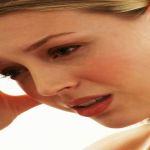Uterine Problems and Infertility
 Uterine problems will have adverse effects in your ability to get and stay pregnant. This isn’t meant to scare you, but you should be well prepared for the fact that problems with your uterus can cause infertility. If you are having difficulty starting your family and are worried you might have fertility problems, your uterus is one of the places you’re going to have examined. Get to know more about your Uterus and learn how it can affect your chances of having a baby.
Uterine problems will have adverse effects in your ability to get and stay pregnant. This isn’t meant to scare you, but you should be well prepared for the fact that problems with your uterus can cause infertility. If you are having difficulty starting your family and are worried you might have fertility problems, your uterus is one of the places you’re going to have examined. Get to know more about your Uterus and learn how it can affect your chances of having a baby.
Along with the ovaries which produce the eggs, the fallopian tube that gets the eggs to their meeting place with the sperm, and the cervix and vagina that make sure the sperm meets the eggs; the uterus is one of the indispensible parts of the reproductive system. Simply put, it is the womb that your future baby will call home. You cant have a baby without the uterus. Thats the bottom line. But sometimes your uterus becomes sick or has problems that can hamper your reproductive abilities. When this happens, the uterus itself adds the hurdles for you to overcome on your road to pregnancy.
To examine your uterus, doctors will usually perform a vaginal ultrasound, a hysterosalpingogram, or a hysteroscopy. A vaginal ultrasound uses sound waves emitted from a probe inserted into the vagina to make a visual map of the reproductive organs including the uterus. A hysterosalpingogram uses an x-ray in conjunction with a special dye that goes into the uterus. The dye makes a visible image of the uterus and the other reproductive organs from an x-ray possible. A hysteroscopy involves a small telescopic camera that enters your uterus through the cervix and vagina and gives an actual view of the interior of the uterus in real time. Common uterine problems that interfere with pregnancy that you can encounter in these examinations include uterine polyps, fibroids, and intrauterine scar-tissue.
Abnormal growths like endometrial polyps or fibroids in your uterus may seriously hamper your ability to get pregnant. Sometimes these growths cause blockages or can deform your uterus so much that it can no longer function as a home for a developing fetus. They can also cause bleeding if they are within the uterine cavity. Endometrial polyps are lesions that can form due to an over-production of the inner lining of the uterus, the endometrium. They can become so large that they have to be removed to facilitate conception. A uterine fibroid is a form of a harmless tumor that grows inside or outside your uterus. This is fairly common and some women who even have multiple fibroids growing on their uterus still go on to have children. If they do become harmful to pregnancy, they can be removed through a form of hysteroscopy called an operative hysteroscopy.
Intrauterine scar-tissue is exactly what it sounds like: scar tissue inside the uterus. This is usually caused by wounds in the uterus from other operations like the removal of growths or a cesarean section. Its also called Ashermans syndrome. These scar-tissues can also be removed through an operative hysteroscopy but doctors will usually employ extra measures, like giving the woman extra estrogen or even inserting a special balloon inside the uterus, about a week after to ensure that no more scar-tissue results from the procedure.
Sometimes the uterus you are born with is defective. Congenital uterine problems include mullerian agenesis, unicornuate uterus, and bicornuate uterus and septate uterus. Mullerian agenesis means you were born without a uterus, though this is very rare. A unicornuate uterus means that you have only half a uterus, with only one fallopian tube and ovary. A bicornuate and septate uterus means your uterus is divided into two. Be careful with these two conditions as they will appear similar in some examinations and have to be differentiated through a combination of evaluations and tests. Though similar, they are treated differently so a proper diagnosis is important. These can be treated through restorative surgery.
These are only a few of the problems you and your uterus may face. But dont lose hope. Many of these problems are treatable and many women still have happy families of their own after overcoming their uterine problems.

